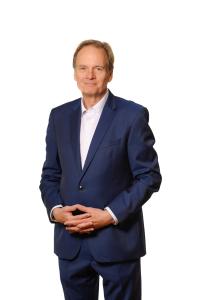KAS Media Africa brought together 16 talented young political leaders from Senegal, Tanzania, Malawi, Uganda, Ghana, Namibia, Mozambique and Angola to share their experiences from their own parties. Supported by the facilitators Heather Thuynsma, a political strategist, and Christian Echle, Director of the KAS Media Program for Sub-Saharan Africa, the participants learned about the theory of campaigning, analysed best and worst practise case studies and honed their skills in the use of social media for political campaigns. The participants worked in groups on exercises, which marked the start of an e-learning programme developed by KAS Media Africa, which is set in a fictional state called Kasiland. The three best performing alumni from last year's program, Fanta Diallo, Elvis Kintu and Mirriam Mzanda, shared their learnings and motivated the new participants, emphasising how the programme helped to improve their skills. "Go through the process, complete it, because it's for you", said Fanta.
On the first day of the summer academy, with the US elections fresh in their minds, the participants discussed the rise of populism. From the discussion they concluded that there are some opportunities and lessons for campaigning on the African continent. One area of focus was Donald Trump's use of Twitter. The fact that he was always counterpunching saved him millions in advertising money, since his name was in the news anyway. Christian Echle highlighted that people seem to be fed up with very established politicians, giving way for political outsiders such as Trump. But this situation is also an opportunity for the African youth to bring a fresh approach to African politics. It was also noted that the big data research Trump did was the reason he could target his voters and convince them to give him their vote.
In the session on social media Echle highlighted the importance of leaving the so-called ‘filter bubble’, which means that you have no alternative views on your facebook timeline. If the Clinton followers would have done that they would not have been so surprised by the number of people who voted for Trump. Heather Thuynsma also pointed out that it is important to "listen to what the political opponents are talking about".
A highlight of the week was the field trip to the headquarters of CHADEMA, the official opposition party in Tanzania. Former MP Tundu Lissu, gave an impressive speech on how to survive the "politics of the new normal", where media houses get shut down and political assemblies are forbidden - a situation which has become very real in Tanzania under president Magufuli. Lissu highlighted the necessity for political parties to think about new ways of organizing and campaigning under more restrictive circumstances.
In their presentation of case studies the two Ghanaian participants, Maame Yaa Dufie and Atick Yakubu from the New Patriotic Party (NPP), outlined their successful campaigning in the run-up to the imminent elections. The women's wing for example washed cars to start a conversation with voters and gain attention. Also, facebook was their most important tool for advertising.
In the group work sessions the participants divided into two parties from Kasiland – the government and the opposition - and set about implementing the theory they had covered. Overall the workshop set the tone for an energetic e-learning phase going forward as a remarkable group dynamic was established and political alliances and friendships across the continent fortified.










